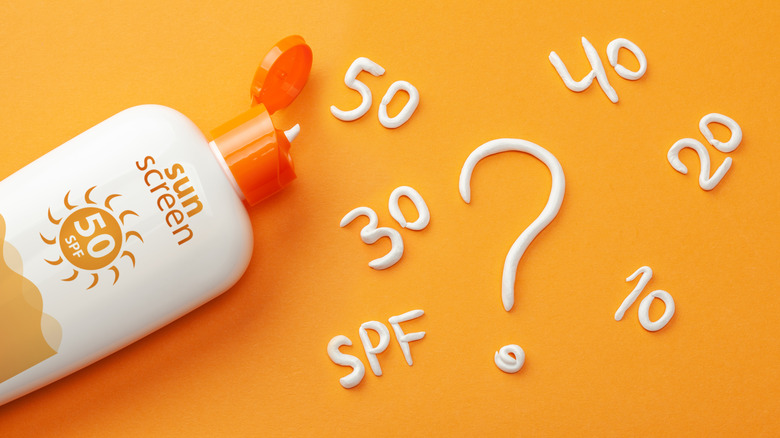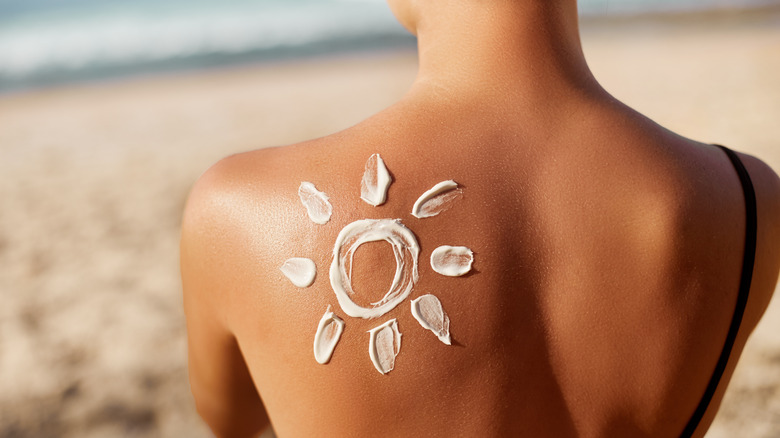Ingredients You Don't Want To See In Your Sunscreen
When shopping for sunscreen, you may think one product is as good as any other. But there are some things to watch out for. When it comes to sunscreen, there are several ingredients that aren't the best choice for your skin or your overall health.
There are two types of sunscreen you can buy — mineral and chemical. Mineral sunscreens are the ones that tend to leave a white film on the skin, and they work by creating a barrier against the sun. They contain one or two ingredients, usually zinc oxide or titanium oxide, according to CNet.
Chemical sunscreens, on the other hand, apply easier and work beneath the skin by absorbing UV light and breaking it down. These products can contain many ingredients, some of which you should check for.
One of these ingredients, oxybenzone, has been banned in Hawaii because it was found to negatively impact ocean life by stripping coral reefs of their natural color and essential bacteria, according to Byrdie. Perhaps more concerning, is that it is absorbed into the body at alarming levels, according to a sunscreen study conducted by the FDA (via WebMD). After just one use, the study found blood levels contained more than 180 times the FDA's maximum recommended amount for topical use.
Avoid these sunscreen ingredients for better health
Other chemicals tested by the FDA that were found to remain in the body at high levels include avobenzone, octocrylene, and ecamsule. Keep an eye out for any of these on your sunscreen ingredient list and if spotted, opt for a different product.
Another damaging chemical, octinoxate, has been shown to provoke skin allergies. Furthermore, it's been shown to negatively impact reproductive health and thyroid function in animals (via Byrdie).
PABA, also known as para-aminobenzoic acid, can cause allergic reactions and increase sensitivity to sunlight. Animal studies have also revealed PABA to be toxic and damaging, causing the FDA to limit it to concentrations of 5% or less (via Healthline).
If you want to avoid questionable chemical ingredients, then reach for a mineral sunscreen. The FDA has ruled mineral sunscreens as generally safe and effective (via WebMD). They may leave a bit of a white cast on skin, but they are safe, healthy, and work as soon as they are applied. Remember that with any type of sunscreen, you need to reapply every few hours that you'll be in the sun.


